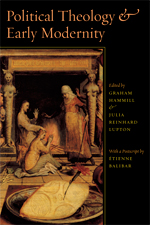
[The the first of three posts this week on Michael Walzer’s “In God’s Shadow: Politics in the Hebrew Bible.”] Michael Walzer occupies a distinctive place in political interpretation. He is a distinguished political scientist who continues to have a significant investment in the Hebrew Bible. His writing thus permits a convergence of the agility of his Jewish perspective on the Bible and his engagement with contemporary questions of power. He has authored an important book on the Exodus narrative and the continuing influence of that narrative upon revolutionary thought and action. His paper, “The Prophets as Social Critics,” moreover, recognized the prophets of ancient Israel as serious social critics and analysts who exposited Israel’s “core values” of justice and righteousness and who were alert to oppressions that impeded social solidarity…
In this column, I want to engage in what Reynolds Price once referred to as “a serious way of wondering” about Exodus 20: 15-18—i.e., the moment at which the Israelites experience the divine self-revelation at the foot of Mount Sinai. Normally, this passage is understood as a theophanic event. To the extent that it involves the constitution of a nation or polity, it has usually been understood as a theocracy. Its intellectual expression (insofar as it addresses the issue of covenantal authority grounded in divine self-revelation) would therefore take the form of a political theology. To the extent that we read the above passage in this way, we have already rendered a decision—the essential significance of the passage would lie in the divine self-revelation. The fear which the Israelites experienced would amount simply and solely to a fear of God. Conversely, an acceptance of the commandments would amount to an acceptance of the political theology undergirding the theocracy.

And so it is to Jerusalem that Jesus must go. Why Jerusalem? How would the scene have played out differently if the Pharisees, in their plotting, had simply arranged to have Jesus murdered on the road – on his way to the city? What if Jesus had never come to Jerusalem? To the temple? What if he died and even was resurrected while preaching the good news of God’s Kingdom in Galilee? What’s so special about Jerusalem?

Herod was scared of a newborn baby. This basic fact of the Epiphany story bears the key to understanding its political implications. Herod’s fear reveals something of the anxiety that accompanies absolute power. In the political context of the Roman Empire, which supported Herod’s control of Judea, the continuance of power depended on the political elites capacity to convince people.

Is God a Socialist? And if so, what kind of socialism does God espouse?

“Faith is the womb that conceives this new life, baptism the rebirth by which it is brought forth into the light of day. The church is its nurse, her teachings are its milk, the bread from heaven is its food.” Gregory of Nyssa’s words are both beguiling and poetic, but in my own urban context, those who bring their children forward for ‘baptism’ often seem to understand it through two, less theologically nuanced notions…

For three weeks now, I have been listening to Mary’s Magnificat sung as a part of the mid-week evening prayer service in my congregation. Last week, I leaned over to my five-year-old and told her, “This is the story of Jesus’ Mommy when she was pregnant with him.” Rereading a paper that I wrote on this text in college, I critiqued an over spiritualization of these words that are “a vivid proclamation of God’s eternal justice and intention to uplift the weak and lowly in a ministry of love…a call to social action on behalf of humanity.” Now, as I sit with the text, I can only say that it is all of this and more…
